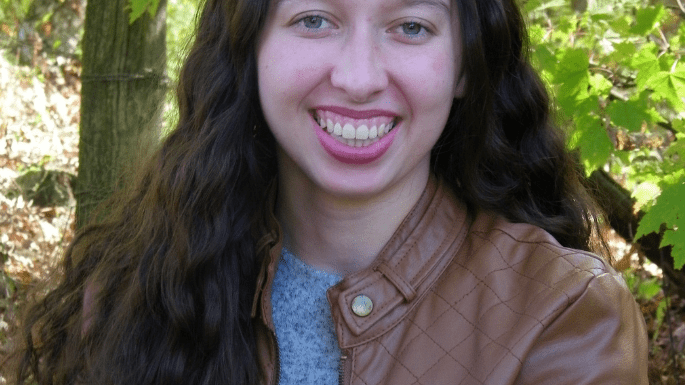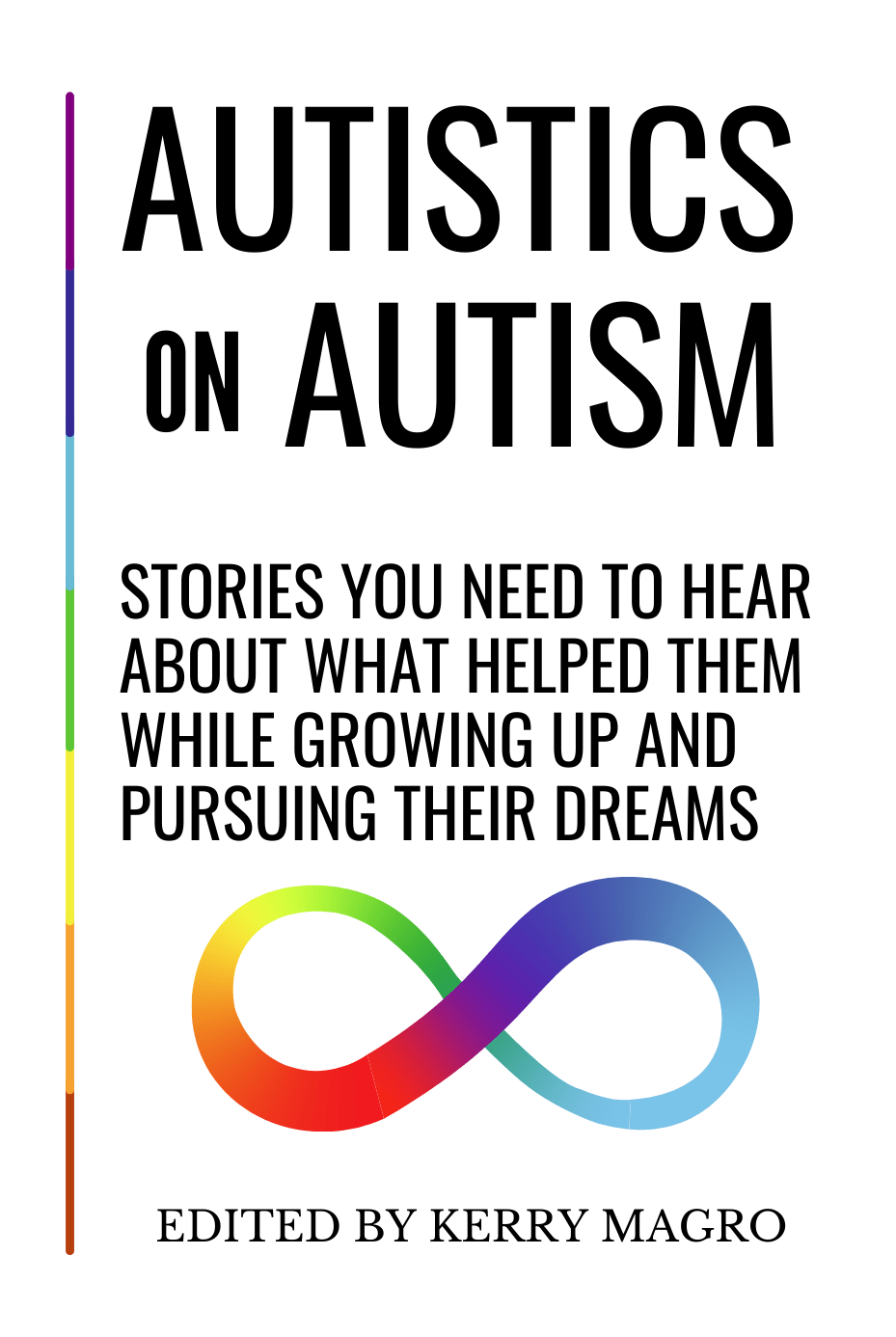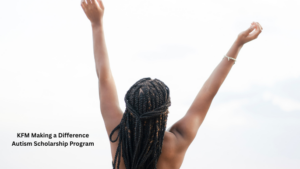This guest post is by Lydia Barrett, a young woman on the autism spectrum who was diagnosed with autism at the age of 13 and has been accepted into Northeast State Community College. Lydia is applying for the Spring 2022 Making a Difference Autism Scholarship via the nonprofit KFM Making a Difference started by me, Kerry Magro. I was nonverbal till 2.5 and diagnosed with autism at 4, and you can read more about my organization here. Autistics on Autism: Stories You Need to Hear About What Helped Them While Growing Up and Pursuing Their Dreams, our nonprofit’s new book, was released on March 29, 2022, on Amazon here for our community to enjoy featuring the stories of 100 autistic adults.
I could not speak until I was three years old; doctors attributed all this to hearing issues which were later corrected, but it delayed my communication abilities. This experience became an excuse for my lack of social skills. However, by age eight, I was diagnosed with several disabilities. Among these are ADHD, Reading Disorder, and Disorder of Written Expression. I started on ADHD medication that was supposed to help but made me feel more disconnected.
These disabilities seemed to describe my struggles but did not describe them all. For example, I never seemed to fit in, and making friends was hard. I did not understand social cues or idioms; many people, including my dad, thought I was rude when I honestly did not know how to interact. I thought being introverted was why I was so exhausted after being around people. Then, at age thirteen, I learned that I had Autism Spectrum Disorder and Sensory Processing Disorder. This knowledge opened an understanding of myself that I lacked, although I wish I had known sooner. My diagnosis was a relief; I now felt I had a starting place in finding my identity.
When I was diagnosed, professionals recommended to my parents that I stay a dependent. I remember my parents telling me this and that it was my choice. Immediately, I answered them, saying that was not an option. I want to go to college, live on my own, and be who I am. I decided that the world cannot form who I am, and if others cannot accept that, I will change the world. A significant change for me when I was diagnosed was that my dad saw who I was and stopped assuming that I was being disrespectful to him; he realized that I genuinely did not understand. This grasp also allowed my dad and me to start talking and accepting that we would not always understand each other though we would try.
I now understand why I observe people and copy them, why eye contact makes me uncomfortable, and why small talk feels impossible. Issues with textures finally made sense to me. I despise handshakes; touch feels weird because people’s hands have different textures. I now understood why I could not stand touching a wall or wearing jeans and often hated food because I did not like how it made my mouth feel. Plus, I learned that my fidgeting is called stimming, which helps me cope. Knowing more about myself and how autism affects me lets me learn that I am not dumb or crazy; I am just not like everyone else, and since the world is designed to focus on mainstream understanding, things will be hard for me to do. However, I have also learned that anything is possible if I am willing to try. Commitment is everything.
Truthfully, I’m still learning. One autistic trait that is prominent is masking; I now understand that I always pretend to be like other people, which is extremely tiring. Sometimes I can be unsure if I am masking or being myself. I still do not fully understand what masking means, but I know that learning about myself will give me more confidence in who I am and help me improve. I have accepted that I am different from mainstream people
I know that my life so far has been good, and that can be attributed to my wonderful family, who always supported me, even my siblings. We have always been close, and they accepted my quirks and loved me. In addition, my struggles were lessened because of being homeschooled. I was allowed to learn at my own pace and follow any special interests with support. For example, one of my first interests was art, which allowed me to express my thoughts and ideas through pictures and designs. I have always been fascinated by drawing, painting, and creating almost anything. My family and I participated in traditional Japanese-style karate for physical education. We trained in a dojo for all ages, where I was the youngest participant. I earned each rank starting at nine years old and earned my third-degree black belt at 18.
Karate taught me that accomplishing things takes commitment and practice. No one could do it for me; I had to drive to keep trying and pushing to the next step. Then in high school, I was required to take a foreign language, that is when I was introduced to ASL (American Sign Language).
In general, communication is a struggle. I have always struggled with understanding others and expressing myself. The best way to describe the feeling would be that my voice would feel stuck when I am nervous or in new situations; I would hate trying to talk with people.
These struggles seemed to change when I learned ASL, a language where I did not have to use my voice. ASL allows me to convey information without boundaries and with confidence. ASL has become one of my special interests. I love learning new words and about deaf culture. I can communicate so much easier through my hands than verbally. I discovered that people in the deaf community are often viewed the same way I have been. I wish to help them have a voice and be heard by becoming an ASL interpreter.
Through my struggles, I have found that when people do things differently, they are often seen as less capable. Art and ASL have helped me express myself in life and develop a way to be heard when I could not communicate like everyone else. Finally, I plan to prove that having a disability is not an excuse to give up but a driving force to work toward your dreams. Overall, I realize nothing in life comes easy, but I know that I am willing to strive for more than a bare existence or goal; I want to change the world.
Follow my journey on Facebook, my Facebook Fan Page, Tiktok, Youtube & Instagram.
My name is Kerry Magro, a professional speaker and best-selling author who is also on the autism spectrum. I started the nonprofit KFM Making a Difference in 2011 to help students with autism receive scholarship aid to pursue post-secondary education. Help support me so I can continue to help students with autism go to college by making a tax-deductible donation to our nonprofit here.
Autistics on Autism: Stories You Need to Hear About What Helped Them While Growing Up and Pursuing Their Dreams was released on March 29, 2022 on Amazon here for our community to enjoy featuring the stories of 100 autistic adults. 100% of the proceeds from this book will go back to our nonprofit to support initiatives like our autism scholarship program. In addition, this autistic adult’s essay you just read will be featured in a future volume of this book as we plan on making this into a series of books on autistic adults.















